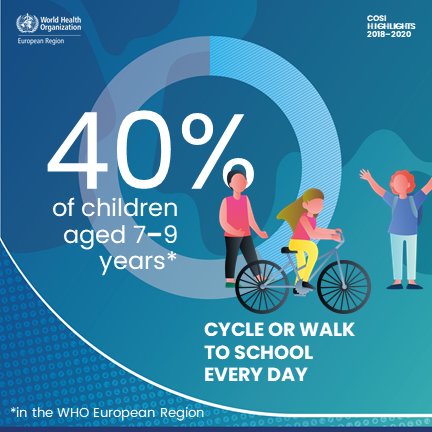🎥🔴 Watch LIVE as @hans_kluge and experts from WHO/Europe provide an situation update on #COVID19 in the European Region. pscp.tv/w/cjHLcjFwempN…
We have a very serious situation unfolding before us. Weekly cases have now exceeded those reported when the pandemic first peaked in Europe in March. Last week, the region’s weekly tally exceeded 300,000 patients. @hans_kluge
More than half of European countries have reported a greater than 10 per cent increase in cases in the past two weeks. Of those, seven countries have seen newly reported cases increase more than two-fold in the same period. @hans_kluge
In the spring and early summer we were able to see the impact of strict lockdown measures. Our efforts, our sacrifices, paid off. In June cases hit an all-time low. The September case numbers, however, should serve as a wake-up call for all of us. @hans_kluge
Although these numbers reflect more comprehensive testing, it also shows alarming rates of transmission across the Region. @hans_kluge
While we did see an increase in cases among older age groups, 50-64 and 65-79 years, in the first week of September, the biggest proportion is still among 25-49 year olds. @hans_kluge
This pandemic has taken so much from us. In Europe 4,893,614 cases of COVID-19 have been recorded and 226,524 deaths. This tells only part of the story – the impact of our mental health, economies, livelihoods and society has been monumental. @hans_kluge
The first of my key messages today is a call for regional coherence, an amplified collective effort by all European Member States, for the sake of all European Member States. @hans_kluge
The response to the crisis has been very effective whenever the actions were prompt and resolute. But the virus has shown merciless whenever partisanship and disinformation prevailed.
Where the pandemic goes from here is in our hands. We have fought it back before and we can fight it back again. @hans_kluge
On Monday this week, at the WHO Regional Office for Europe’s Regional Committee meeting, the 53 Member States of the European Region unanimously adopted a new vision for health for the next five years. @hans_kluge
The European Programme of Work (EPW) focuses on meeting the needs and expectations of European citizens. With this endorsement countries articulated the importance of solidarity and trust between our countries. @hans_kluge
I believe there is a willingness to live by this ethos as it will protect all our communities. @hans_kluge
We will continue to advocate with government institutions for policy decisions that are prompted by an actual change in the situation and driven by epidemiological data. This capacity was well demonstrated as countries across the region, gradually reopened schools. @hans_kluge
A great example of such coherence was the school conference we co-hosted with the Italian Minister of Health, @robersperanza in August, which led to the consensus publication of schooling during the #COVID19 pandemic which is now available at our website. @hans_kluge
My second message, is that we need to use the knowledge and know-how that we now possess, to implement what works and not implement what doesn’t. @hans_kluge
We know we need hospital & intensive care unit capacity, personal protective equipment but also much greater involvement of the primary and community care. @hans_kluge
We know we need to protect our healthworkers and other frontline workers who keep society running and the elderly in long-term care homes. @hans_kluge
We know the basic public health measures which work, including scaling up of testing, handwashing, physical distancing, masks when physical distancing is not possible, and avoiding large gatherings. @hans_kluge
But we also need to be restless to update scientific knowledge, as more evidence becomes available. Take for example quarantine, as a cornerstone of our fight against #COVID19. @hans_kluge
• • •
Missing some Tweet in this thread? You can try to
force a refresh













